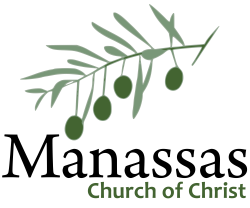 Wheeler Howard’s sermon on Hosea last Sunday evening was a blessing in several ways. He drew our attention to an often neglected book of unparalleled power and poignancy. He reminded us of the lengths to which the prophets of old were asked to go to communicate the message. And he got me thinking about 1 and ½ homers of barley.
Wheeler Howard’s sermon on Hosea last Sunday evening was a blessing in several ways. He drew our attention to an often neglected book of unparalleled power and poignancy. He reminded us of the lengths to which the prophets of old were asked to go to communicate the message. And he got me thinking about 1 and ½ homers of barley.The story of Hosea is a story of divorce, adultery, and reconciliation. God’s people have committed adultery by their idolatry. He is going to divorce them – but there will be a time of reconciliation, of a remnant restored. Hosea communicates this message in language of heartbreaking power (see if you can find anything like Hosea 11 anywhere) but he is asked to do more. He is asked to live the message – to experience it in his personal life. He is asked to go find a prostitute to purchase, to love, to marry, to have a family with. He does. Her name is Gomer, and they have three children. After the third child is born she returns to her life of prostitution. God then commands Hosea to take her back, to go buy his wife again from her life of prostitution. The price he pays is 15 shekels and 1 and ½ homers of barley (Hosea 3.2).
The humiliation and anguish of having to go to his wife’s place of business, and to contract to purchase her a second time, after she deserted him and their children are unimaginable. I’ve thought about that for years, but I never thought about the price he paid – 15 shekels and 1 and ½ homers of barley. Where did that price come from? Why the barley?
We have a bit of Bible background as far as pricing goes. Judah agreed to pay Tamar a young goat (Genesis 38.17) – but that was for one encounter, and took place a thousand years before Hosea was written. Judah was also involved in the sale of his brother Joseph as a slave to the Midianites, and the price paid is 20 shekels of silver (Genesis 37.28). Of course added to the inflation rates of a thousand years is the fact that Joseph is a strong, young man, not an aging prostitute. Exodus 21.32 sets the price of a slave at 30 shekels of silver. But again, Exodus is written at least five centuries before Hosea. It seems certain that 15 shekels of silver would not be enough money to buy a slave in the 8th Century, B.C.
Which, I gather, is where the barley enters into the mathematics of this.
1 and ½ homers of grain are roughly equivalent to 10-12 bushels. We are not told if this is raw grain or winnowed grain. Barley is of less value than wheat – it is the grain working people can afford. Whatever Gomer’s price is in coin, Hosea doesn’t have it. He has to make up for his lack of cash in kind. Maybe he has his own farm, and has to raise the barley himself, maybe he gleans it, maybe it represents the food stores he has in his house to feed his children. I don’t know, but the notion that after Hosea scrapes together every coin in his possession, he finds that he is still seriously short of buying back his wife – and the thought of him working and sweating, or scrimping and measuring our enough barley to make up the difference for this woman who turned her back on her husband and children for her old life of prostitution, breaks my heart for him.
Of course, Hosea, in this drama, represents God. God is saying – “Look! This is Me, this is what I am doing for you…this is the price I’m willing to pay.” He did, of course, pay the highest price – he gave himself as a sacrifice for our sins. The name “Hoshea” is the same name as “Joshua” and means “God is salvation.” The Greek version of the name is Jesus.
The image of Hosea counting out every last coin, sweeping up every last kernel of grain to come up with enough to buy back his adulterous wife is an image of God redeeming us. Let us never forget that image, never forget that price. To do so would be to forget just how much we are loved.




